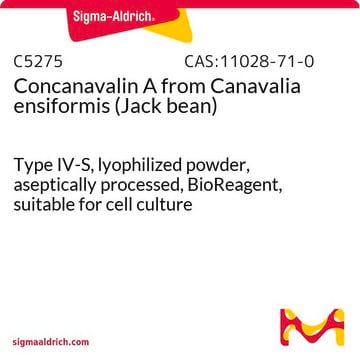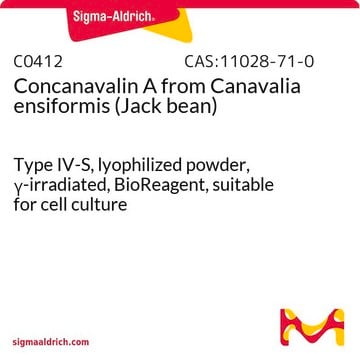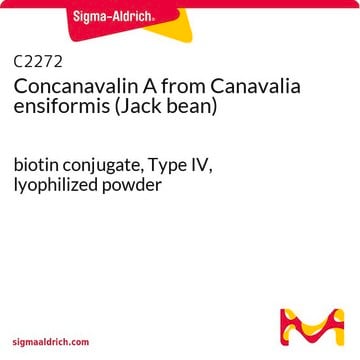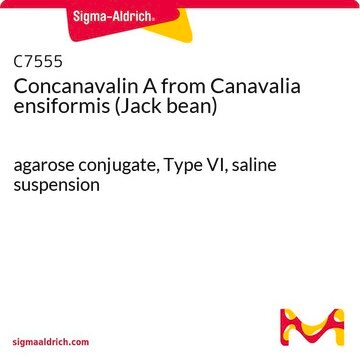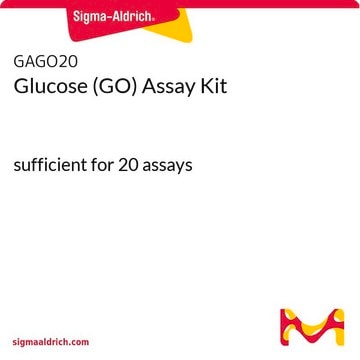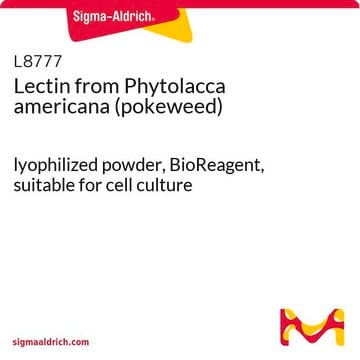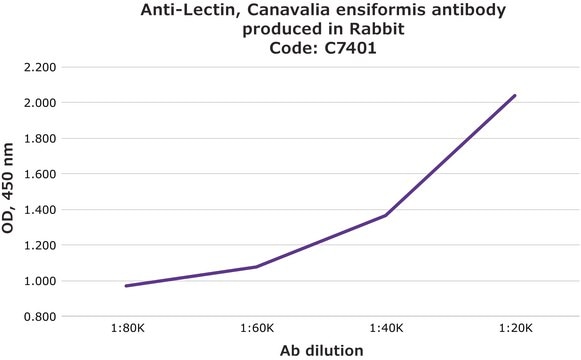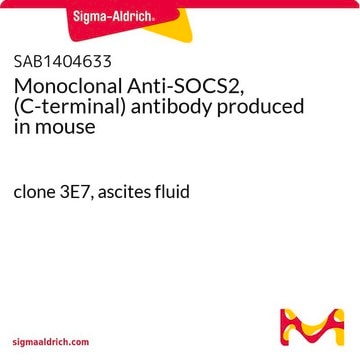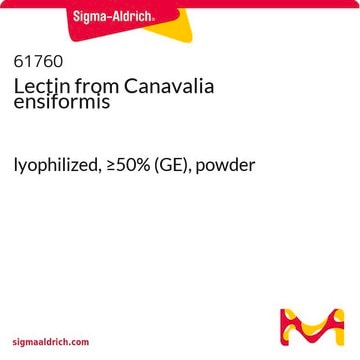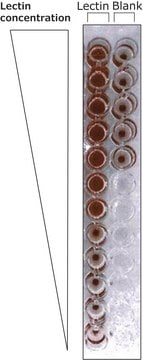C2010
Concanavalin A from Canavalia ensiformis (Jack bean)
Type IV, lyophilized powder
Synonyme(s) :
Con A
About This Item
Produits recommandés
Type
Type IV
Niveau de qualité
Forme
lyophilized powder
Puissance
<64 μg per mL agglutination activity
Impuretés
Carbohydrate, essentially free
salt, essentially free
Température de stockage
−20°C
Vous recherchez des produits similaires ? Visite Guide de comparaison des produits
Catégories apparentées
Description générale
Application
- as T-lymphocyte mitogen in lymphocyte proliferation assay for correlations with organochlorine contaminants (OCs)
- for in vitro stimulation of T cell hybridomas, BW5147 cells and primary CD4+ T cells for T cell vaccination and for induction of hepatitis
- for the stimulation of mice splenocytes in the suppression of T-lymphocytes proliferation assay
- for the stimulation of spleen in mitogen assays
Actions biochimiques/physiologiques
Qualité
Remarque sur l'analyse
Mention d'avertissement
Danger
Mentions de danger
Conseils de prudence
Classification des risques
Repr. 2 - Resp. Sens. 1 - Skin Sens. 1
Code de la classe de stockage
13 - Non Combustible Solids
Classe de danger pour l'eau (WGK)
WGK 3
Point d'éclair (°F)
Not applicable
Point d'éclair (°C)
Not applicable
Équipement de protection individuelle
dust mask type N95 (US), Eyeshields, Faceshields, Gloves
Certificats d'analyse (COA)
Recherchez un Certificats d'analyse (COA) en saisissant le numéro de lot du produit. Les numéros de lot figurent sur l'étiquette du produit après les mots "Lot" ou "Batch".
Déjà en possession de ce produit ?
Retrouvez la documentation relative aux produits que vous avez récemment achetés dans la Bibliothèque de documents.
Les clients ont également consulté
Notre équipe de scientifiques dispose d'une expérience dans tous les secteurs de la recherche, notamment en sciences de la vie, science des matériaux, synthèse chimique, chromatographie, analyse et dans de nombreux autres domaines..
Contacter notre Service technique